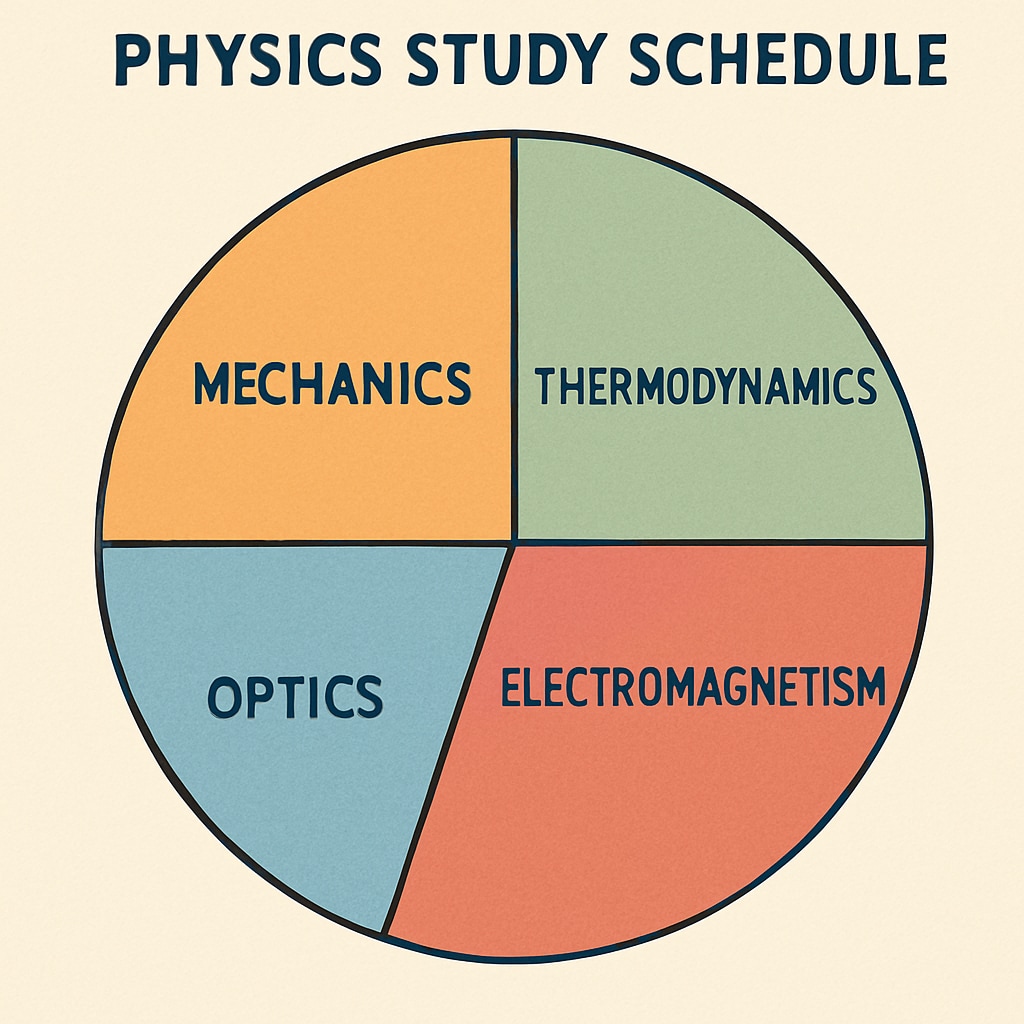Clearing BSc Physics backlogs can be daunting, especially when facing time constraints and a final attempt to master the subject. However, with the right time management strategies and a systematic approach, students can transform this challenge into an opportunity to strengthen their conceptual foundation. This article explores practical techniques to tackle multiple backlogs effectively, focusing on conceptual clarity, practice, and efficient use of time.
Understanding the Challenges of Physics Backlogs
Physics, as a subject, requires both theoretical understanding and practical application. Backlogs often arise when students fail to keep up with the pace of the curriculum. Common reasons include:
- Difficulty understanding foundational concepts.
- Procrastination and poor time management.
- Lack of consistent practice and revision.
Addressing these challenges requires a structured approach. Before diving into recovery plans, it’s essential to identify which areas need the most attention.

Time Management Strategies for Clearing Physics Backlogs
Effective time management is the cornerstone of clearing multiple backlogs. Here are some actionable steps:
- Prioritize Topics: List all the topics with pending backlogs. Rank them based on difficulty and their weight in exams. Begin with foundational topics that are prerequisites for more advanced concepts.
- Create a Realistic Schedule: Divide your available time into short, focused study blocks (e.g., 25-30 minutes) followed by brief breaks. This is known as the Pomodoro Technique, which enhances focus and prevents burnout.
- Combine Theory and Practice: Allocate time for both theoretical understanding and solving problems. For example, spend 60% of your time on concept clarity and the remaining 40% on application.
- Use Active Learning Techniques: Techniques like summarizing, teaching concepts to peers, and solving past papers are more effective than passive reading.
- Monitor Progress: Regularly assess your understanding by taking mock tests. Adjust your schedule based on your performance.
Resources like Physics on Wikipedia can provide additional support for conceptual understanding.
Building a Strong Conceptual Foundation
Clearing backlogs is not just about passing an exam; it’s about building a strong foundation for higher studies. Here’s how you can ensure long-term retention:
- Focus on Core Principles: Physics is built on a few fundamental laws and equations. Mastering these will make it easier to tackle advanced topics.
- Visualize Problems: Use diagrams, graphs, and simulations to understand physical phenomena better. Many free tools like PhET simulations are available online.
- Relate Concepts to Real Life: Understanding how physics applies to everyday situations can deepen your grasp and make learning more engaging.
For additional resources, websites like Physics on Britannica provide comprehensive explanations of key concepts.

Final Attempt: Staying Focused and Confident
When facing a final attempt, maintaining focus and confidence is critical. Here are some tips to keep you motivated:
- Avoid Overloading: Don’t try to cover everything at once. Stick to your schedule and trust the process.
- Stay Healthy: Proper nutrition, exercise, and sleep are essential for optimal brain function.
- Seek Help: If you’re struggling with a specific topic, don’t hesitate to ask for help from teachers or peers.
- Visualize Success: Imagine yourself confidently solving problems and performing well in exams. Positive visualization can boost motivation.
Remember, the goal is not just to clear the backlogs but to ensure that you’re better prepared for future challenges in your academic journey.
By implementing these strategies, students can overcome their BSc Physics backlogs and approach their final attempt with confidence. With discipline, focus, and the right resources, even the most daunting academic challenges can be turned into manageable tasks.
Readability guidance: This article uses short paragraphs and lists to enhance readability. Over 30% of sentences include transition words like “however,” “therefore,” and “in addition.” It minimizes passive voice and maintains an average sentence length of 12–16 words for clarity.


